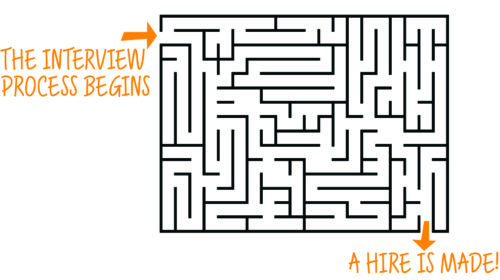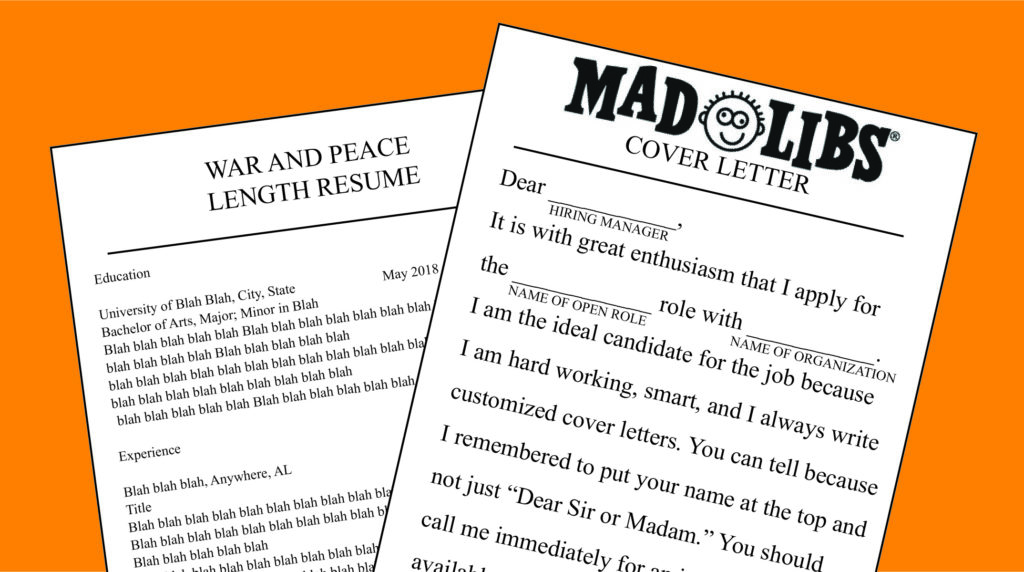What a time for your organization to be hiring, huh?
Your team members are scattered around, working from home perhaps for the first time ever, and trying to squeeze in interviewing amidst homeschool lessons. Your job applicants are hesitant to make a move to an organization unless they are confident about stability. And you cannot fly your finalists in for an in-person interview for the foreseeable future, but you still need to fill a crucial role.
As a result, you’ll likely need to rethink your entire interviewing strategy. So, here are some pointers to get the most out of interviewing during this challenging time.
- Figure out a plan. Because your old interviewing plan is now out the window, you’ll want to start from scratch. Who will be involved in the interview process? Will you start with a series of phone interviews? If so, who will be involved? If you want multiple staff members to phone interview candidates, will you need a teleconference line? And after the phone interviews, will you want to do virtual interviews since in-person interviewing now is off the table? Are you willing to hire someone without meeting him/her in person? If you’re not, how long are you willing to wait until travel restrictions are lifted? Also, how will you handle candidates who aren’t comfortable traveling as soon as shelter-in-place rules are relaxed? As you can see, there is a lot to think about now!
- Set up a teleconference line. If your organization does not already have a reliable teleconference line, now is a good time to get one set up. Here are some options:
- Use your Android or iPhone if your call will include five or fewer participants. To get a call with multiple parties started, all you have to do is call the first participant, select “Add call,” call the next participant, select “Merge Call,” and then add other participants as needed.
- GoToMeeting provides access to unlimited online meetings, including screen sharing for up to 3 users for free.
- Join.me offers screen share, chat, and the ability to transfer files to up to 3 users for free with the cost increasing if you need more users.
- If you’re looking for free teleconference capability, you can’t beat Free Conference Call.There is no video, screen share, or file transfer ability, but you can host up to 1000 users on a conference call for free.
- Skype is best known for video calls, but you can use it for a regular phone call as well. You can use it on your computer or phone and have text, audio, and video conferencing for free. You can host a conference call for up to 25 people. Each user will need to download Skype.
- Google Hangouts allows up to 25 people on an audio call. For pure audio tele-conferencing, all you need to do is register a phone number.
- Zoom, like Skype, is best known for video tele-conferencing but you can also use it just for audio. In the free version, group calls are limited to 40 minutes. You can pay $14.99 a month for the Zoom Pro Plan for longer conversations.
- Set up a virtual interviewing platform. Now that you’ll likely want to incorporate video interviewing to your repertoire, make sure to have a platform ready to go. Here are some options to consider:
- Skype is perhaps the best known video conferencing system. As mentioned above, you can host a video conference call for up to 25 people for free. Each user will need to download Skype.
- Google Hangouts is a great video tele-conference option if all the users have a gmail account. It can accommodate 25 people in a video call.
- Zoom allows for unlimited free one-to-one video calls but group calls are limited to 40 minutes. As mentioned above, you can pay $14.99 a month for the Zoom Pro Plan for longer conversations.
- Test out your systems in advance to make interviewing as seamless as possible. You want to spend your interview time getting to know the candidate and having as genuine a conversation as possible; not figuring out how to sign in to Skype, make the screen look the way you want it, and adjusting the volume. So get all of those background tasks out of the way long before the interview. There is no substitute for running a test with a colleague. Perhaps multiple colleagues are going to be on the call so ideally, you are all testing out the system together. During your test, pay attention to the sound, picture, and quality of the internet connection. You can’t interview in person but you want to make the experience as close to the in-person experience as it can possibly be. Make sure technology is helping (not hindering) your efforts.
- Communicate openly about what your hiring process will look like. Candidates are nervous right now. They aren’t sure what coronavirus will do to the hiring landscape and they don’t know how it will affect the interview process. So, step up your communication in this department and try to put them at ease.For instance, if you plan to move to a 100% virtual interview process, tell them that. Or, if you plan to proceed with a virtual process and then hit pause until you can do the final interviews in person, tell them that (and then keep them informed as things move along and travel resumes).Increased communication with candidates during this difficult time will help allay fears build trust.
- Be understanding about distractions and background noise. When a candidate is interviewing for a role in your organization, best practices dictate that they should have a quiet space free of distractions to devote to the interview. Indeed, our advice to candidates says they should do just that! But in the COVID-19 era, it has never been more difficult to find a distraction-free space. Even in the best case scenario, a candidate who is living alone may be living in a big apartment building next to other people who are stuck at home making tons of noises that the candidate cannot control. And, in the worst case scenario, a candidate may be trying to navigate an interview at home with three kids, a spouse who is also working, and two loud dogs. With that in mind, try to be a little more understanding than you would otherwise be if you hear an errant “daddy daddy” or the Frozen 2 song playing in the background while a three-year old sings along.Oddly enough, these difficult circumstances can provide really great information about candidates and how they behave in the midst of adversity. Is a good sense of humor important to you in your next hire? How your candidate reacts to unexpected interruptions during their interview will show you what their general disposition is so you don’t have to ask. It is like a behavioral interview question times a thousand!
- Use the interviewing process to reassure candidates about your organization’s stability. Candidates are nervous about a lot of things now, including the stability of the organization they may join. Use this opportunity to assuage their fears. Tell them how COVID-19 has impacted your organization thus far and what you expect will happen in the coming months (as much as one can predict the future during these uncertain times). Tell them about your diverse fundraising strategy and how you’ve prepared for times like this (assuming this is true!). If you cannot in good faith assure candidates that your organization is financially stable, you should probably delay hiring until you can!
- In the coming weeks and months, be understanding with candidates who are reluctant to travel. Even after the travel restrictions are lifted and we move away from social distancing, some candidates may still be hesitant to travel — especially those who are high risk or live with someone who is. For legal reasons, you don’t want to ask questions about their health, but suffice it to say, now is a good time to be understanding of those who are not willing or able to travel. Hopefully, we can be back to our in-person interviewing ways in the near future, but, until then, it is ideal to be accommodating if someone doesn’t want to hop on a plane.
We hope these tips help optimize your interviews and enable you to land great talent in the age of COVID-19.








